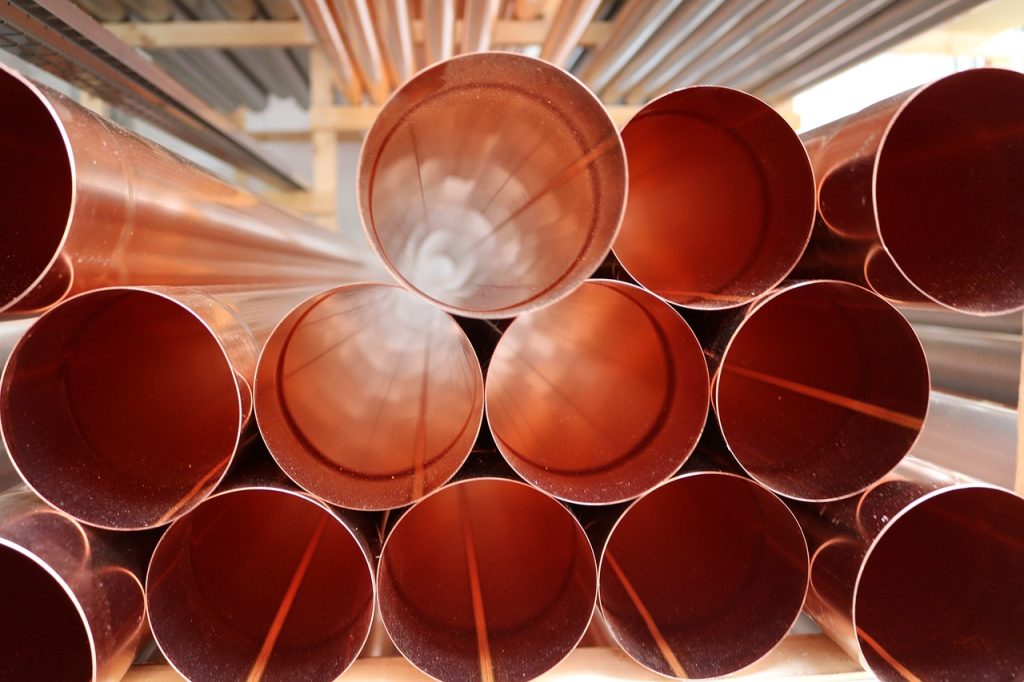Exploring the Diverse Applications of Copper Products in Modern Industries
Copper products have established themselves as indispensable components across a myriad of modern-day industries, largely because of their impressive conductivity, malleability, and resistance to deterioration. From boosting the performance of electrical systems to playing an essential function in sustainable power technologies, the convenience of copper is apparent. Additionally, its recyclability settings it as a lasting choice in manufacturing and electronics. As markets progressively focus on technology and sustainability, the diverse applications of copper require a closer exam, especially concerning their possible influence on future ecological methods and technological innovations.
Electrical Applications of Copper
Copper is a vital product in the electric sector, accounting for approximately 60% of the total demand for non-ferrous metals globally - Copper Products. Its superior electric conductivity, which is nearly two times that of aluminum, makes it the favored selection for a large array of electrical applications. From electrical wiring systems in property and industrial buildings to high-voltage power transmission lines, copper guarantees effectiveness and integrity in electrical power shipment
Along with electrical wiring, copper is integral to the production of electric parts such as electric motors, transformers, and generators. These elements take advantage of copper's thermal conductivity and pliability, vital for heat dissipation and efficient efficiency. Moreover, copper's resistance to deterioration improves the life expectancy and sturdiness of electric systems, making it an affordable service in the long term.
The development of renewable resource resources, such as solar and wind power, has actually better boosted the demand for copper in electric applications. As industries change in the direction of lasting energy remedies, copper's duty becomes a lot more critical. In general, the adaptability and efficiency features of copper solidify its condition as a keystone product within the electrical field, driving innovation and efficiency throughout different applications.
Plumbing and Piping Solutions
In modern-day plumbing systems, the choice of products dramatically affects both functionality and long life. Copper has become a preferred alternative as a result of its unique homes, consisting of rust resistance and antimicrobial characteristics. These qualities make sure that copper piping remains secure and resilient for transferring safe and clean water, an essential factor to consider in residential and industrial applications.
One of the essential benefits of copper in pipes is its ability to hold up against high temperatures and pressures, making it suitable for a range of applications, from warm water systems to home heating and cooling networks. In addition, copper's adaptability permits less complicated setup in complex piping layouts, lowering the threat of leaks and failures.
One more noteworthy benefit is copper's lengthy lifespan, typically exceeding 50 years with appropriate upkeep. This durability not just reduces substitute costs however also adds to lasting methods by decreasing waste. Copper's recyclability lines up with contemporary environmental requirements, promoting a round economic situation within the pipes market.
Copper in Renewable Energy
The versatility of copper extends beyond plumbing applications, playing a vital function in the eco-friendly power industry. In solar panels, copper is made use of in photovoltaic or pv cells and electrical wiring, assisting in effective power conversion and transmission.

Furthermore, as the global demand for electrical vehicles (EVs) increases, copper's function in battery systems and charging infrastructure ends up being a lot my blog more substantial. The material's ability to carry out electrical energy effectively is integral to the performance of EV batteries, enhancing array and billing rate.
Copper's Duty in Electronics
Electronics producing depends look at these guys heavily on copper's outstanding buildings, specifically its high electrical conductivity and thermal effectiveness. These features make copper an excellent choice for a variety of electronic elements, including ports, circuit card, and circuitry. The steel's capability to effectively transmit electrical signals makes sure very little power loss, which is critical in high-performance electronic tools.
Furthermore, copper's thermal conductivity plays a significant duty in heat dissipation, protecting delicate parts from overheating. This is specifically important in contemporary electronics, where compact layouts lead to enhanced warm generation. Copper is likewise favored for its malleability and ductility, enabling it to be quickly shaped into intricate designs that meet the demands of innovative electronic applications.
With the surge of customer electronic devices, telecoms, and electric lorries, the need for copper in the electronics field proceeds to expand. As innovations in technology develop, copper stays important to achieving greater performance and integrity in digital items. Its recyclability additionally improves its allure, as makers look for sustainable solutions without compromising high quality. Thus, copper remains a foundation material in the ever-expanding area of electronics.
Cutting-edge Makes Use Of in Manufacturing

One noteworthy application is in additive production, where copper-based materials are utilized in 3D printing procedures. This enables the creation of lightweight elements and complicated geometries, especially in the aerospace and auto markets. In addition, copper's thermal conductivity makes view it a perfect option for warmth exchangers, enhancing effectiveness in commercial air conditioning systems.
Additionally, the rise of clever manufacturing has actually seen the incorporation of copper in IoT tools, where its conductive abilities support advanced noticing innovations. In the world of renewable resource, copper is critical in the manufacturing of photovoltaic panels and wind generators, promoting extra efficient energy conversion and circulation.
As sectors pursue sustainability and advancement, copper's flexibility and performance proceed to place it as a crucial material, driving improvements in production and adding to the advancement of smarter, a lot more effective products.
Conclusion
The essential function of copper in sustainable energy and its essential feature in electronic devices highlight its significance in advancing sustainable methods. Jointly, these applications highlight copper's essential payment to technical development and industrial effectiveness in modern society.
From boosting the effectiveness of electrical systems to playing a crucial function in eco-friendly power innovations, the convenience of copper is evident. As sectors significantly focus on innovation and sustainability, the varied applications of copper necessitate a closer assessment, especially concerning their possible influence on future technological developments and environmental methods.
The development of renewable power sources, such as solar and wind power, has additionally enhanced the demand for copper in electric applications. Overall, the flexibility and efficiency features of copper strengthen its standing as a foundation material within the electrical sector, driving innovation and performance throughout different applications.
The convenience of copper prolongs past plumbing applications, playing a vital duty in the eco-friendly energy sector.